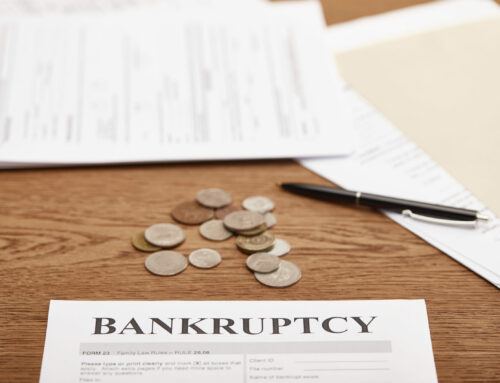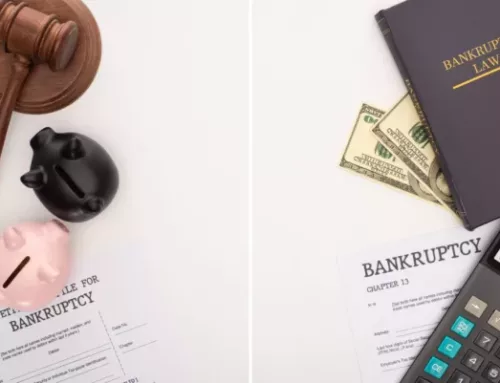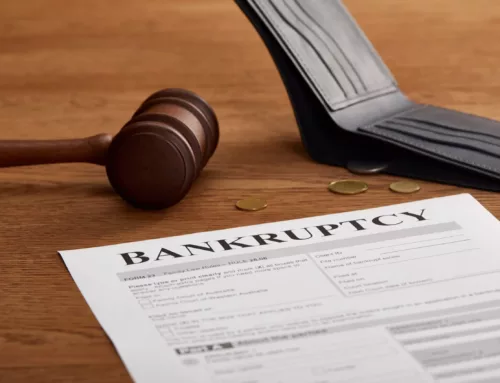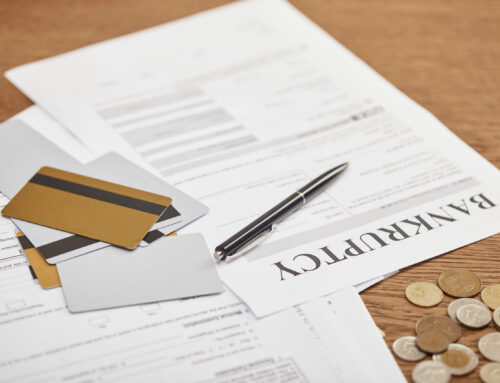Filing for bankruptcy will most certainly have an immediate negative effect on your credit score. On the contrary, receiving a bankruptcy discharge will affect your credit positively.
A bankruptcy discharge happens at the end of your bankruptcy case. The discharge is the court order that eliminates your debt. How a bankruptcy discharge affects your credit will vary depending on which chapter you file.
In a Chapter 7 case, the discharge is granted a few months after you file the case. In a Chapter 13 case, the bankruptcy discharge is granted years after you file.
Hire our expert Jackson, MS Bankruptcy Lawyer to help you manage your credit score.
What Happens to Your Credit When You File A Chapter 7 Bankruptcy?
Chapter 7 is a straight bankruptcy that will eliminate most unsecured debts. The case does not last very long. A Chapter 7 discharge is usually granted about 4 months after the case is filed.
A Chapter 7 filing will usually cause your credit score to drop more than a Chapter 13 filing. However, the benefit of Chapter 7 is that you receive your discharge sooner.
Once you receive your discharge the vast majority of the other negative information reported about your debts will also be removed from your credit history.
The discharge will usually result in your credit score improving. And if your credit score is pretty bad, you may actually have a better credit score after Chapter 7 than you did prior to filing.
Chapter 7 will be reported on most credit reports for 10 years.
What Happens to Your Credit When You File A Chapter 13 Bankruptcy?
 Chapter 13 is a type of bankruptcy that is used to pay back some of your debt through a bankruptcy repayment plan. Since you are repaying some of your debt this bankruptcy usually doesn’t affect your credit as much.
Chapter 13 is a type of bankruptcy that is used to pay back some of your debt through a bankruptcy repayment plan. Since you are repaying some of your debt this bankruptcy usually doesn’t affect your credit as much.
Filing the case will cause your score to drop just like Chapter 7 does, but the drop will not be as large. The downside is that you have to wait until the end of the plan to receive your discharge. The plan usually lasts 3-5 years.
The good news is that you can have pretty good credit once you receive your Chapter 13 discharge.
Can You Have Good Credit After Filing Bankruptcy?
It is possible to rebuild your credit after filing a bankruptcy case. You need to manage your debt better and make sure to make your payments on time. Don’t overextend yourself.
If you reaffirm debts in a Chapter 7 case and then make timely payments, that can also help build your scores back up.
It is possible to borrow money after a bankruptcy case as well. As a Jackson, MS Bankruptcy Lawyer I’ve seen many people finance a car immediately after filing a Chapter 7 bankruptcy. We have also had clients take out a mortgage while actively in a Chapter 13 case.
Everyone’s situation is different and your credit score will react differently depending on your circumstances.
How Is A Credit Score Calculated?
According to FICO:
- 35% of your credit score is based on payment history
- 30% is the amount you owe (are your cards maxed out?)
- 15% is the length of your credit history
- 10% is a new credit
- 10% is the credit mix
To improve your credit, you should:
- Make your monthly payments on time
- Avoid taking a new debt
- Keep your current credit accounts open
- Live on a budget
- Save up an emergency fund so that you can handle unexpected expenses
- Get a free copy of your credit report each year and review it carefully
What Is A Credit Report?
Credit Bureaus are companies that compile data about a person’s creditworthiness. Creditors send data to credit bureaus when you borrow money and they also report to them if you make your payments on time.
Creditors keep track of how high your credit limit is and how much you currently owe. It can hurt your credit if you have maxed out your credit limits. It will also hurt your score if you are late on monthly payments.
There are three major credit bureaus that lenders use. The big three are Experian, Equifax and Transunion.
Lenders use other companies as well. If you would like a free copy of your credit report then you can obtain it at annualcreditreport.com. You are allowed to pull your credit report for free once per year.








Connect with Us